

Best Creative Writing colleges in North Carolina 2024
Best creative writing colleges in north carolina for 2024.
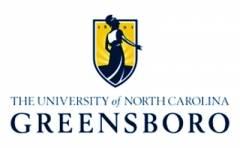
University of North Carolina at Greensboro offers 1 Creative Writing degree programs. It's a large, public, four-year university in a large city. In 2022, 10 Creative Writing students graduated with students earning 10 Master's degrees.
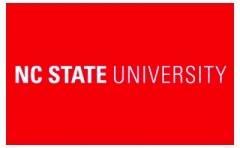
North Carolina State University at Raleigh offers 1 Creative Writing degree programs. It's a very large, public, four-year university in a large city. In 2022, 12 Creative Writing students graduated with students earning 12 Master's degrees.

University of North Carolina Wilmington offers 2 Creative Writing degree programs. It's a large, public, four-year university in a midsize city. In 2022, 60 Creative Writing students graduated with students earning 33 Bachelor's degrees, and 27 Master's degrees.
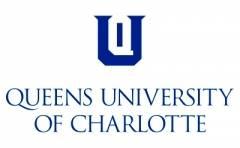
Queens University of Charlotte offers 5 Creative Writing degree programs. It's a small, private not-for-profit, four-year university in a large city. In 2022, 33 Creative Writing students graduated with students earning 28 Master's degrees, and 5 Bachelor's degrees.
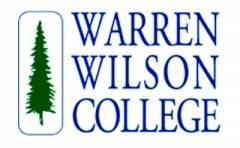
Warren Wilson College offers 2 Creative Writing degree programs. It's a very small, private not-for-profit, four-year university in a large suburb. In 2022, 35 Creative Writing students graduated with students earning 22 Master's degrees, and 13 Bachelor's degrees.
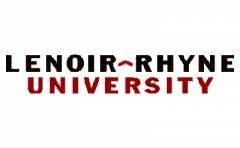
Lenoir-Rhyne University offers 1 Creative Writing degree programs. It's a small, private not-for-profit, four-year university in a small city. In 2022, 1 Creative Writing students graduated with students earning 1 Master's degree.
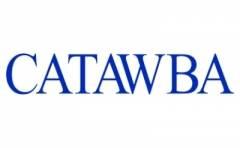
Catawba College offers 1 Creative Writing degree programs. It's a small, private not-for-profit, four-year university in a midsize suburb.
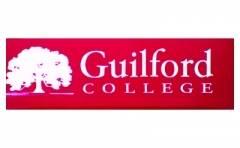
Guilford College offers 1 Creative Writing degree programs. It's a small, private not-for-profit, four-year university in a large city. In 2022, 5 Creative Writing students graduated with students earning 5 Bachelor's degrees.
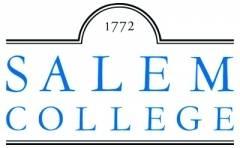
Salem College offers 1 Creative Writing degree programs. It's a very small, private not-for-profit, four-year university in a midsize city. In 2022, 3 Creative Writing students graduated with students earning 3 Bachelor's degrees.
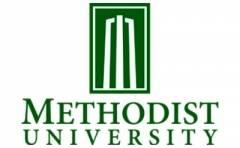
Methodist University offers 1 Creative Writing degree programs. It's a small, private not-for-profit, four-year university in a midsize city.
Find local colleges with Creative Writing majors in North Carolina
List of all creative writing colleges in north carolina.
| School | Average Tuition | Student Teacher Ratio | Enrolled Students | |
|---|---|---|---|---|
| Greensboro, NC | 2/5 | 22 : 1 | 17,978 | |
| Raleigh, NC | 3/5 | 20 : 1 | 36,700 | |
| Wilmington, NC | 2/5 | 24 : 1 | 17,843 | |
| Charlotte, NC | 5/5 | 15 : 1 | 1,873 | |
| Swannanoa, NC | 5/5 | 11 : 1 | 793 | |
2024 Best Creative Writing Schools in North Carolina
Choosing a great creative writing school, pick your creative writing degree level, best schools for creative writing in north carolina, top north carolina schools in creative writing.
There were approximately 12 creative writing students who graduated with this degree at NC State in the most recent year we have data available.
There were about 60 creative writing students who graduated with this degree at UNCW in the most recent data year.
Embrace your passion for storytelling and learn the professional writing skills you'll need to succeed with our online MFA in Creative Writing. Write your novel or short story collection while earning a certificate in the Online Teaching of Writing or Professional Writing, with no residency requirement.
Related Programs
There were about 10 creative writing students who graduated with this degree at UNC Greensboro in the most recent year we have data available.
Best Creative Writing Colleges in the Southeast Region
| State | Colleges | Degrees Awarded |
|---|---|---|
| 715 | 121 | |
| 690 | 92 | |
| 630 | 169 | |
| 624 | 38 | |
| 530 | 36 | |
| 518 | 48 | |
| 501 | 25 | |
| 500 | 20 | |
| 489 | 43 | |
| 466 | 45 | |
| 410 | 9 |
Other Rankings
Bachelor's degrees in creative writing, master's degrees in creative writing, creative writing related rankings by major, majors similar to creative writing.
| Related Major | Annual Graduates |
|---|---|
| 45 | |
| 23 |
Notes and References
Popular reports, compare your school options.
- Skip to Content
- Catalog Home
- Institution Home
- Explore Programs (Majors & Minors)
- Programs A-Z
- Degree Requirements
- General Education Curriculum
- Departments
- Professional Schools and Colleges
- Academic Enrichment Programs
- Explore Programs (Graduate)
- Schools and Departments
- Graduate Education
- Courses A-Z
- Course Search
- Undergraduate /
- Departments /
- English and Comparative Literature /
- Creative Writing Minor

The undergraduate creative writing program at UNC–Chapel Hill is — and has long been — one of the best in the country. Its first-rate faculty and students have published widely, won many prizes, and played a major role in shaping the contemporary literature of North Carolina, the South, and the nation.
Requirements
In addition to the program requirements listed below, students must:
- take at least nine hours of their minor "core" requirements at UNC–Chapel Hill
- earn a minimum cumulative GPA of 2.000 in the minor core requirements. Some programs may require higher standards for minor or specific courses.
For more information, please consult the degree requirements section of the catalog .
The Creative Writing Program offers a minor in creative writing. The minor requires 15 hours, a total of five courses.
Enrollment in courses beyond the intermediate level is by permission only. Students may declare the minor through Academic Advising. Completion of a minor in creative writing is contingent on the student’s successful advancement through the sequence.
The Creative Writing Program also gives credit toward the minor for several courses offered in other departments, such as DRAM 231 , COMM 330 , COMM 433 , and MEJO 356 . To qualify for a degree with honors or highest honors in creative writing, students must maintain a 3.3 grade point average and meet all requirements both to enter and to complete the senior honors seminar ( ENGL 693H and ENGL 694H ). Students minoring in creative writing and planning to study abroad must plan carefully so that they meet all submission and deadline requirements for applying to successive courses.
To complete the minor, students will complete five (5) courses from one of the following options:
Combination of Genres:
| Code | Title | Hours |
|---|---|---|
| Select five (5) courses from any track below and/or from the following list of courses: | 15 | |
| Creative Writing: Special Topics | ||
| Introduction to Writing for Film and Television | ||
| Intermediate Screenwriting | ||
| Feature Writing | ||
| Total Hours | 15 | |
Fiction Track:
| Code | Title | Hours |
|---|---|---|
| 3 | ||
| or | ||
| Select one of the following courses: | 3 | |
| 3 | ||
| & | 6 | |
| Total Hours | 15 | |
Poetry Track:
| Code | Title | Hours |
|---|---|---|
| 3 | ||
| or | ||
| Select one of the following courses: | 3 | |
| 3 | ||
| & | 6 | |
| Total Hours | 15 | |
Musical/Musical Theater Writing Track:
| Code | Title | Hours |
|---|---|---|
| Select five (5) courses: | 15 | |
| Creative Writing: Special Topics (with permission based on topic) | ||
| Introduction to Composition | ||
| Inside the Song: Analysis of Songcraft | ||
| Playwriting I | ||
| Total Hours | 15 | |
Creative Nonfiction Writing Track:
| Code | Title | Hours |
|---|---|---|
| 3 | ||
| 3 | ||
| or | ||
| 3 | ||
| 3 | ||
| 3 | ||
| Total Hours | 15 | |
No more than two (2) courses can be taken outside the Department of English and Comparative Literature.
ENGL 130 , ENGL 131 , ENGL 132H , ENGL 133H , and ENGL 138 , the introductory classes, are prerequisites to other Creative Writing Program classes. ENGL 130 , ENGL 131 , and ENGL 138 are open for registration by rising sophomores only during spring semester for the following fall and for current sophomores only during fall semester for the following spring. Rising or current sophomores may register for ENGL 130 , ENGL 131 , or ENGL 138 , but not for more than one of these three courses. Demand by sophomores regularly exceeds the number of seats available. Enrollment of juniors and seniors is on a space-available basis by permission of the instructor, and students may inquire of the instructor during the first week of classes to see if seats are available. ENGL 130 , ENGL 131 , and ENGL 138 are sometimes offered during summer sessions with no registration restrictions. Please always review summer session course listings for any changes or updates.
Advancement to successive courses in either the fiction or poetry sequence is by recommendation of the student’s previous instructor(s) and by application for both the advanced workshops and senior honors seminars. If possible, the student is assigned to a different instructor for each course. Should students not advance beyond the intermediate level, they may choose to finish the minor with other classes offered in creative writing. Creative writing minors receive priority in all creative writing classes and usually fill all seats.
Students completing the five courses for the minor may take additional creative writing courses only by permission of the director, providing that all other students still completing the minor are served first.
Transfer Students: Important Information
The requirement for taking a minor in creative writing is five courses or 15 semester hours. Students are limited to one creative writing course per semester. Most junior transfer students have four semesters remaining. Junior transfer students wanting to minor in creative writing must either
- Have an introductory course already on their record that will transfer to Carolina as credit, e.g., an introductory course in fiction writing or poetry writing taken previously at a college or university that is transferring in as credit for ENGL 130 or ENGL 131 ; OR
- Take an introductory course via UNC–Chapel Hill Summer School prior to their first fall term at Carolina and be promoted to the next level or to another creative writing class (on a space-available basis) in the fall of their junior year.
Permission to move forward with transfer credit for an introductory course requirement (Option 1 above) will require a review by the creative writing faculty of the syllabus and work completed in the course and is dependent on space availability, which cannot be guaranteed. Students must provide hard copies of syllabi and samples of coursework as early as possible in order to ensure time for review and to schedule a meeting with the director.
Junior transfer students fulfilling one of these two options would be eligible for Advanced Fiction or Poetry ( ENGL 406 or ENGL 407 ) and the senior honors seminars ( ENGL 693H and ENGL 694H ) if there is space available in Intermediate Fiction ( ENGL 206 ) or Intermediate Poetry ( ENGL 207 ) their first fall semester, and if — on the basis of submitted work reviewed by a committee — they are chosen for those classes. If not, they would need to complete the minor using the multigenre approach.
Note: No more than two creative writing courses from other schools may be counted for credit at UNC–Chapel Hill. At least three of the five courses taken for the minor — courses designated ENGL — must be Creative Writing Program courses taken at Carolina.
Honors in Creative Writing
To qualify for a degree with honors or highest honors in creative writing, students must maintain a 3.3 grade point average and meet all requirements both to enter and to complete the senior honors seminar ( ENGL 693H and ENGL 694H ).
See the program page here for additional special opportunities.
Department Programs
- English and Comparative Literature Major, B.A.
- Comparative Literature Minor
- Composition, Rhetoric, and Digital Literacy Minor
- English Minor
- Global Cinema Minor
- Latina/o Studies Minor
- Medicine, Literature, and Culture Minor
- Medieval and Early Modern Studies Minor
Graduate Programs
- Ph.D. in English and Comparative Literature
- M.A. in English with a Concentration in Literature, Medicine, and Culture
Department of English and Comparative Literature
Visit Program Website
Greenlaw Hall, CB# 3520
(919) 962-5481
Program Director
Marsha Collins
ECL Undergraduate Advisor
Hilary Lithgow
Director of Undergraduate Studies
Joseph Fletcher
- Programs A-Z
- Aerospace Studies
- African, African American, and Diaspora Studies
- American Studies
- Anthropology
- Applied Physical Sciences
- Archaeology
- Art and Art History
- Asian and Middle Eastern Studies
- Biochemistry and Biophysics
- Biomedical Engineering
- Biostatistics
- Cell Biology and Physiology
- City and Regional Planning
- Civic Life and Leadership
- Communication
- Computer Science
- Dramatic Art
- Earth, Marine, and Environmental Sciences
- Environment, Ecology, and Energy
- Environmental Sciences and Engineering
- European Studies
- Exercise and Sport Science
- Geography and Environment
- Germanic and Slavic Languages and Literatures
- Global Studies
- Health Policy and Management
- Clinical Laboratory Science Major, B.S.
- Neurodiagnostics and Sleep Science Major, BS
- Radiologic Science Major, B.S.
- Speech and Hearing Sciences Minor
- Interdisciplinary Studies
- Latin American Studies
- Linguistics
- Mathematics
- Microbiology and Immunology
- Military Science
- Naval Science
- Pathology and Laboratory Medicine
- Peace, War, and Defense
- Physics and Astronomy
- Political Science
- Psychology and Neuroscience
- Public Policy
- Religious Studies
- Romance Studies
- Statistics and Operations Research
- Women’s and Gender Studies
- College of Arts and Sciences
- Kenan–Flagler Business School
- Data Science and Society
- Information and Library Science
- UNC Hussman School of Journalism and Media
- UNC Adams School of Dentistry
- UNC Eshelman School of Pharmacy
- Gillings School of Global Public Health
- Summer School
- Digital and Lifelong Learning
- FY-SEMINAR & FY-LAUNCH
- FY-TRIPLE
- GLBL-LANG
- FC-AESTH
- FC-CREATE
- FC-PAST
- FC-VALUES
- FC-GLOBAL
- FC-NATSCI
- FC-POWER
- FC-QUANT
- FC-KNOWING
- FC-LAB
- Research and Discovery
- High-Impact Experience
- Communication Beyond Carolina
- Lifetime Fitness
- Campus Life Experience
- Global Guarantee
- Study Abroad
- Undergraduate Research
- Honors Carolina
- Honors Beyond Chapel Hill
- Internships
- Distinguished Scholarships
- Languages across the Curriculum
- Student Life and Leadership
- North Carolina Fellows Program
- Summer Bridge
- Degree Programs
- African, African-American, and Diaspora Studies
- Applied Professional Studies
- Bioinformatics and Computational Biology
- Biological and Biomedical Sciences
- Clinical Laboratory Science
- Clinical Mental Health Counseling
- Clinical Rehabilitation Counseling
- English and Comparative Literature
- Epidemiology
- Genetics and Molecular Biology
- Health Behavior
- Health Informatics
- Human Movement Science
- Journalism and Media
- Maternal and Child Health
- Medicine-Health Sciences
- Neurobiology
- Occupational Science and Occupational Therapy
- Pharmacology
- Physician Assistant Studies
- Public Health Leadership
- School of Law
- Social Work
- Speech and Hearing Sciences
- Toxicology and Environmental Medicine
- Academic Resources
- Certificate Programs
- AEROSPACE STUDIES (AERO)
- AFRICAN, AFRICAN-AMERICAN, DIASPORA STUDIES (AAAD)
- AMERICAN STUDIES (AMST)
- ANTHROPOLOGY (ANTH)
- APPLIED SCIENCES (APPL)
- ARABIC (ARAB)
- ARCHAEOLOGY (ARCH)
- ARMY (ARMY)
- ART HISTORY (ARTH)
- ASIAN STUDIES (ASIA)
- ASTRONOMY (ASTR)
- BIOCHEMISTRY (BIOC)
- BIOINFORMATICS AND COMPUTATIONAL BIOLOGY (BCB)
- BIOLOGICAL AND BIOMEDICAL SCIENCES (BBSP)
- BIOLOGY (BIOL)
- BIOMEDICAL ENGINEERING (BMME)
- BIOSTATISTICS (BIOS)
- BOSNIAN-CROATIAN-SERBIAN (BCS)
- BUSINESS ADMINISTRATION (BUSI)
- CAROLINA HEALTH INFORMATICS PROGRAM (CHIP)
- CATALAN (CATA)
- CELL BIOLOGY AND PHYSIOLOGY (CBPH)
- CHEMICAL BIOLOGY AND MEDICINAL CHEMISTRY (CBMC)
- CHEMISTRY (CHEM)
- CHEROKEE (CHER)
- CHICHEWA (CHWA)
- CHINESE (CHIN)
- CITY AND REGIONAL PLANNING (PLAN)
- CLASSICAL ARCHAEOLOGY (CLAR)
- CLASSICS (CLAS)
- CLINICAL LABORATORY SCIENCE (CLSC)
- CLINICAL REHABILITATION AND MENTAL HEALTH COUNSEL (CRMH)
- COMMUNICATION STUDIES (COMM)
- COMPARATIVE LITERATURE (CMPL)
- COMPUTER SCIENCE (COMP)
- CONTEMPORARY EUROPEAN STUDIES (EURO)
- CZECH (CZCH)
- DATA SCIENCE AND SOCIETY (DATA)
- DENTAL GRADUATE COURSE (DENG)
- DENTAL HYGIENE (DHYG)
- DENTAL HYGIENE EDUCATION (DHED)
- DRAMATIC ART (DRAM)
- DUTCH (DTCH)
- EARTH, MARINE, AND ENVIRONMENTAL SCIENCES (EMES)
- ECONOMICS (ECON)
- EDUCATION (EDUC)
- ENDODONTICS (ENDO)
- ENGLISH (ENGL)
- ENVIRONMENT AND ECOLOGY (ENEC)
- ENVIRONMENT SCIENCES (ENVR)
- EPIDEMIOLOGY (EPID)
- EXERCISE AND SPORT SCIENCE (EXSS)
- EXPERIENCED TEACHER EDUCATION (EDMX)
- EXPERIENTIAL AND SPECIAL STUDIES (SPCL)
- EXPERIMENTAL THERAPEUTICS (DPET)
- FOLKLORE (FOLK)
- FRENCH (FREN)
- GENETICS AND MOLECULAR BIOLOGY (GNET)
- GEOGRAPHY (GEOG)
- GEOLOGICAL SCIENCES (GEOL)
- GERMAN (GERM)
- GERMANIC AND SLAVIC LANGUAGES AND LITERATURES (GSLL)
- GLOBAL STUDIES (GLBL)
- GOVERNMENT (GOVT)
- GRADUATE STUDIES (GRAD)
- GREEK (GREK)
- HEALTH BEHAVIOR (HBEH)
- HEALTH POLICY AND MANAGEMENT (HPM)
- HEBREW (HEBR)
- HINDI-URDU (HNUR)
- HISTORY (HIST)
- HUNGARIAN (HUNG)
- INFORMATION AND LIBRARY SCIENCE (INLS)
- INTERDISCIPLINARY STUDIES (IDST)
- ITALIAN (ITAL)
- JAPANESE (JAPN)
- JEWISH STUDIES (JWST)
- KOREAN (KOR)
- LATIN (LATN)
- LATIN AMERICAN STUDIES (LTAM)
- LIFETIME FITNESS (LFIT)
- LINGALA LANGUAGE (LGLA)
- LINGUISTICS (LING)
- MACEDONIAN (MACD)
- MANAGEMENT AND SOCIETY (MNGT)
- MARINE SCIENCE (MASC)
- MATERIAL SCIENCE (MTSC)
- MATERNAL AND CHILD HEALTH (MHCH)
- MATHEMATICS (MATH)
- MEDIA AND JOURNALISM (MEJO)
- MICROBIOLOGY (MCRO)
- MUSIC (MUSC)
- NAVAL SCIENCE (NAVS)
- NEUROBIOLOGY (NBIO)
- NEURODIAGNOSTICS AND SLEEP SCIENCE (NDSS)
- NEUROSCIENCE (NSCI)
- NURSING (NURS)
- NUTRITION (NUTR)
- OCCUPATIONAL SCIENCE (OCSC)
- OCCUPATIONAL THERAPY (OCCT)
- OPERATIVE DENTISTRY (OPER)
- ORAL PATHOLOGY (ORPA)
- ORAL RADIOLOGY (ORAD)
- ORTHODONTICS (ORTH)
- PATHOLOGY (PATH)
- PEACE, WAR, AND DEFENSE (PWAD)
- PEDIATRIC DENTISTRY (PEDO)
- PERIODONTOLOGY (PERI)
- PERSIAN (PRSN)
- PHARMACEUTICAL SCIENCES (PHRS)
- PHARMACOENGINEERING AND MOLECULAR PHARMACEUTICS (DPMP)
- PHARMACOLOGY (PHCO)
- PHARMACY (NON-DEPARTMENTAL) (PHCY)
- PHARMACY OUTCOMES AND POLICY (DPOP)
- PHILOSOPHY (PHIL)
- PHYSICAL ACTIVITIES (PHYA)
- PHYSICS (PHYS)
- POLISH (PLSH)
- POLITICAL SCIENCE (POLI)
- PORTUGUESE (PORT)
- PRACTICE ADVANCEMENT AND CLINICAL EDUCATION (PACE)
- PROSTHODONTICS (PROS)
- PSYCHOLOGY (PSYC)
- PUBLIC ADMINISTRATION (PUBA)
- PUBLIC HEALTH (PUBH)
- PUBLIC POLICY (PLCY)
- RADIOLOGIC SCIENCE (RADI)
- RECREATION AND LEISURE STUDIES (RECR)
- RELIGIOUS STUDIES (RELI)
- ROMANCE LANGUAGES (ROML)
- RUSSIAN (RUSS)
- SCHOOL OF CIVIC LIFE AND LEADERSHIP (SCLL)
- SCHOOL OF PUBLIC HEALTH GENERAL (SPHG)
- SLAVIC LANGUAGES (SLAV)
- SOCIAL WORK (SOWO)
- SOCIOLOGY (SOCI)
- SPANISH (SPAN)
- SPEECH AND HEARING SCIENCES (SPHS)
- STATISTICS AND OPERATIONS RESEARCH (STOR)
- STUDIO ART (ARTS)
- SWAHILI (SWAH)
- TOXICOLOGY (TOXC)
- TURKISH (TURK)
- UKRAINIAN (UKRN)
- UNDERGRADUATE RESEARCH (URES)
- VIETNAMESE (VIET)
- WOMEN'S AND GENDER STUDIES (WGST)
- WOLOF LANGUAGE (WOLO)
- Administrative Officers
- Board of Trustees
- Board of Governors
- UNC-Chapel Hill: An Introduction
- The UNC System
- Academic Calendar
- NCCC Transfer Articulation and Pathways
- Graduate Admissions
- Explore Programs
- General Education Approved Course Substitution Lists
- Registration, Enrollment, and Withdrawal
- Attendance, Grading, and Examination
- Academic Standing
- University Policies
- Transcripts
- Resources: Academic and Research
- Resources: Campus Life
- Resources: Career Planning
- Resources: Health and Wellness
- Resources: Service and Leadership
- Tuition and Financial Aid

About UNC Admissions Resources Policies and Procedures Tuition and Financial Aid Academic Calendar
© 2024-2025 Copyright
Print Options
Print this page.
The PDF will include all information unique to this page.
All pages in Graduate Catalog.
All pages in Undergraduate Catalog.

- College of Arts, Humanities and Social Sciences
- Academic Departments
- Undergraduate Programs
B.A. English (Creative Writing)
The creative writing program.
“Leading with Service – Motivating through Words and Ideas”
North Carolina A&T is one of the oldest historically Black colleges and universities (HBCU) offering a full-service Creative Writing Program, and one of the few offering a Bachelor of Arts degree in English/Creative Writing. At North Carolina A&T we help you shape your ideas into the spoken or printed word.
Students choose from two tracks: fiction or poetry, and while our curriculum includes a full range of literature past and present, we have a special focus on African-American Literature, literature of Africa and the African Diaspora. Spoken Word and Hip-Hop are among the courses offered. Such diverse course offerings allow our majors to develop their talents in writing fiction, poetry, screenwriting, spoken word and nonfiction from a diverse background of writing traditions. Students also have the opportunity to:
- Participate in the Aggie Open-mic Series: SpiritSpeak
- Attend the Carolina on my Mind Reading Series
- Become an Aggie Keeper Peer-mentor
- Perform in N.C. A&T’s premier Spoken Word Troupe: Poetic Insurgents
- Become the next Aggie Poet Laureate
- Become an Aggie Poet of the Month
- Publish in our literary journal: Encore
- Join the creative writing club: Freedom Scribes
- Showcase creative work in The Blue Poet Salon
- Write in the Bi-annual Craft Workshops for majors
- Participate in a writing competition: NC HBCU Literary Network
- Participate in the annual "Aggies Create" Literary Festival
For more information contact:
Dr. Kimberly Harper Interim Chair, Department of English North Carolina A&T State University General Classroom Bldg., A-440
336-285-3518 or 336-334-7771
Skip to Main Landmark (Press Enter)
Spartan Alert
Creative writing, m.f.a.

The Master of Fine Arts in creative writing is a two-year residency program with an emphasis on providing studio time for the writing of poetry or fiction. Our students develop their particular talents through small classes in writing, literature, publishing, and the arts.
As a community of writers, students read and comment on each other’s work under the guidance of distinguished resident and visiting faculty, who also meet with students in one-on-one tutorials.
PROGRAM DISTINCTIONS
- UNC Greensboro’s Creative Writing program is one of the oldest and most distinguished in the country.
- The residential faculty at the MFA Writing Program in Greensboro are not only award-winning writers, but also committed teachers who have spent their careers mentoring young writers.
- Graduates have published more than 200 works of poetry and fiction since 2008.
- Many graduates have received prestigious literary prizes. For example, MFA alumna Kelly Link was a 2016 Pulitzer Prize finalist in fiction.
THE STUDENT EXPERIENCE
- The program is kept intentionally small, enabling students to work one-on-one with faculty in a close-knit community of writers.
- 18-24 hours in writing courses are required, including workshop courses for poetry or fiction and tutorials in writing where students work one-on-one with members of the faculty.
- The program offers fully funded graduate assistantships, including out-of-state and in-state tuition, health insurance, and a stipend.
- Students serve as fiction and poetry editors for “The Greensboro Review,” the program’s literary journal for more than 50 years.
- Each year the faculty also invites writers and editors to visit the campus for readings, workshops, and master classes with MFA students.
AFTER GRADUATION
- Alumni from the MFA Writing Program at Greensboro have gone on to teach or direct writing programs at such places as Clemson University, Colorado State University, Cornell University, Florida State University, the University of Vermont, and the University of Wisconsin at Madison.
- Graduates have continued their literary careers with a variety of awards, including the Pulitzer Prize and the Kingsley-Tufts Poetry Award, and numerous grants including those from the Guggenheim Foundation, the Rockefeller Foundation, and the National Endowment for the Arts.
APPLY TO Creative Writing, M.F.A
*Only required if there are additional admission requirements
- For a full list of application instructions, visit https://english.uncg.edu/mfa/admission-assistantships/
- Graduate Record Exam (GRE) scores are no longer required for admission to this program.
- Students must submit a writing sample of fiction or poetry to be reviewed by all faculty members in the genre. The primary decider of admission is the student’s writing sample.
Get more information
Want more information let’s get started, program details.
Degree Type: Master's
College/School: College of Arts and Sciences
Program Type: Majors & Concentrations
Class Type: In Person
Learn More About the Department of English
Similar Degree Offerings
- English, M.A.
- English, Ph.D.
Terry Kennedy Director of MFA in Creative Writing Department of English [email protected] 336-334-5459
Quick Links
- Meet Our Faculty
- Alumni Spotlights
Appalachian State University

- Undergraduate Programs
English (BA) - Creative Writing

The skills most in demand for today’s job market are those in which English majors excel – oral and written communication, reading comprehension, active listening, analysis and critical thinking.
These fundamental strengths place graduates of Appalachian State University’s English (BA) – Creative Writing program at the top of employers’ wish lists, assuring them success and flexibility in a variety of careers – including writing, editing, publishing, journalism, broadcasting, marketing, advertising, public relations, teaching, educational administration, law, business, library and information science, the caring professions, government and more.
With award-winning faculty including a former North Carolina Poet Laureate, Appalachian’s Department of English offers one of the finest undergraduate creative writing programs in North Carolina. Students flourish in small classes focused on workshopping their writing, and have the opportunity to engage with renowned visiting authors, including Appalachian’s Rachel Rivers-Coffey Distinguished Professor of Creative Writing.
After Graduation
Employment: Students who graduated from this program have gone on to work for Oxford University Press, Technica Editorial Services, Adams Literary Agency, Cox Media Group, MicroMass Communications, UNC-Chapel Hill, Merkle, Blue Cross and Blue Shield of North Carolina, Impact Financial Systems and others.
Graduate School: Students who chose to continue their education have gone on to earn graduate degrees in English, law, publishing, library and information science, education, communication sciences and disorders, public administration, social work, computer science and creative writing. Students from this program have gone on to MFA graduate programs in Creative Writing at the following schools:
- Dartmouth University
- University of Iowa
- University of San Francisco
- University of South Florida
- Indiana University
- Sarah Lawrence College
- New York University
- Georgia State University
- UNC-Greensboro
- UNC-Wilmington
- North Carolina State University
Career Exploration website
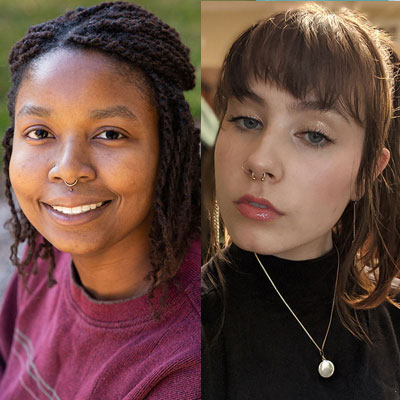
English majors Jay Phillips of Charlotte and Victoria Goff of Akron, Ohio, have been recognized as the latest recipients of App State’s Truman Capote Literary Trust Scholarship, having received feedback on their work by poet Jacinta White.
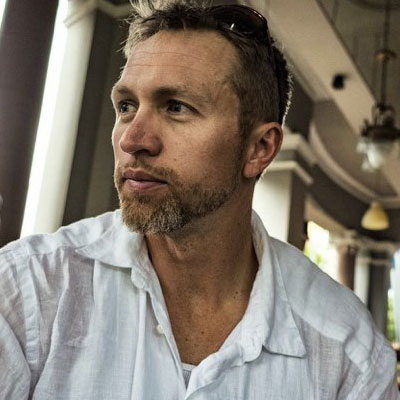
A two-time Fulbright award recipient, Mark Powell is working on his seventh novel. He is director of the university’s Hughlene Bostian Frank Visiting Writers Series, which brings renowned writers to Appalachian’s campus each year.
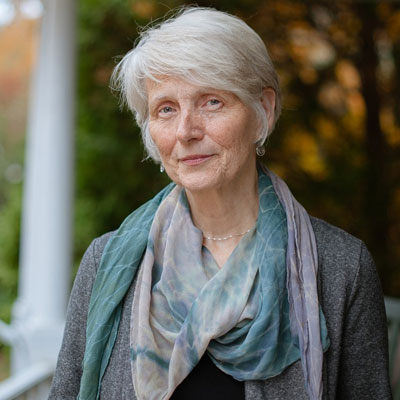
Among the honors she has received, Kirkpatrick is a two-time recipient of the Roanoke-Chowan Award for Poetry, awarded each year to a North Carolina poet for the best book of poetry.
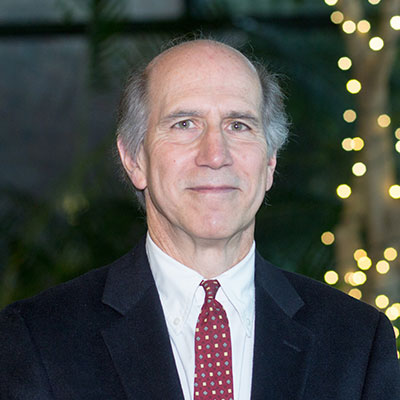
Rigorous and adventurous is how this former North Carolina Poet Laureate and award-winning writer describes Appalachian’s creative writing program.
Meet more faculty
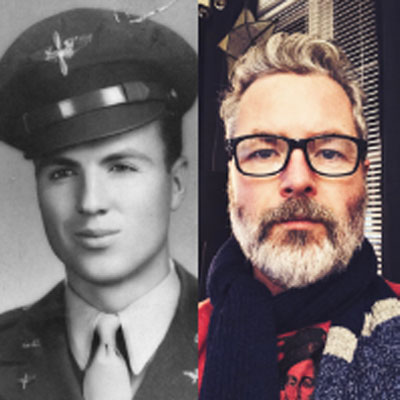
Todd Atchison, a poet and prose writer, says he believes his time at App State as an English and philosophy major prepared him to be a writer. He recently published his grandfather’s memoir during the coronavirus pandemic.
Meet more alumni
Click on the pdf for your major
A minor is required for this major. Popular choices include:
- TESL/Applied Linguistics
- General Business
- Religious Studies
- Political Science
- Theatre Arts
View all minors
Engagement Outside the Classroom
Sigma Tau Delta is an international honor society for English undergraduates.
Lyric is Appalachian’s Spoken Word Poetry Club.
The Peel is an award-winning student-run literary publication that features Appalachian students’ stories, poetry, essays and artwork.
Cold Mountain Review is Appalachian’s professional literary review published out of the Department of English.
APPS Society Film Series is sponsored by the Appalachian Popular Programming Society (APPS).
Sustainability Film Series screens films that help viewers better understand the challenges facing human culture and our planet.
The Queer Film Series seeks to increase campus and community awareness of the histories, lives, and cultures of LGBTQI (lesbian, gay, bisexual, transgender, questioning, and intersex) persons.
The Hughlene Bostian Frank Visiting Writers Series brings eight authors to campus for readings and craft talks throughout the school year.
Global Learning
Appalachian is committed to introducing students to different cultures and teaching them how to live and interact in a global society .
Admission Requirements
There are no admission requirements beyond admission to Appalachian State University.
Want to learn more?
Why appalachian.
- The Hughlene Bostian Frank Visiting Writers Series brings eight authors to campus every year.
- Appalachian’s Creative Writing concentration was the first undergraduate program in the U.S. to receive an endowed Truman Capote Creative Writing Scholarship. It is awarded annually to a rising junior or senior whose submissions of prose or poetry are judged to be outstanding. The department also offers the John Foster West and Marian Coe Creative Writing Scholarship Competitions.
- The Rachel Rivers-Coffey Distinguished Professorship in Creative Writing brings to campus every fall a writer of national prominence. In the past, the program has hosted Al Young, Toi Derricotte, Kelly Cherry, Robert Morgan, R.T. Smith, Gurney Norman, Nancy Huddleston Packer, Kathryn Stripling Byer, George Ella Lyon and others.
- Research shows that English majors who choose to pursue a graduate or professional degree consistently perform at the highest levels on the GMAT, MCAT, LSAT and the GRE.
- Qualifying students can participate in App State’s Accelerated Master’s program — often called 4+1 — and complete a master’s degree in English in one additional year.
Boone and Hickory
Appalachian graduates with English degrees excel wherever employers value cultural literacy and the ability to read carefully, think critically and write effectively.
See where they work
College of Arts and Sciences
Department of english.
Dr. Leonardo Flores Chair [email protected] 828-262-3098
The Department of English at Appalachian State University is committed to outstanding work in the classroom, the support and mentorship of students, and a dynamic engagement with culture, history, language, theory and literature. It offers Master of Arts degrees in English and rhetoric and composition, as well as undergraduate degrees in literary studies, film studies, creative writing, professional writing and English education.
Appalachian’s Largest College
The College of Arts and Sciences at Appalachian State University is home to 17 academic departments, two centers and one residential college spanning the humanities and the social, mathematical and natural sciences. The college is dedicated to providing instruction and research essential to the university's mission and seeks to cultivate the habits of inquiry, learning and service among all its constituents.
By the Numbers
- 1/3 of the degrees awarded at Appalachian
- More than 70% of general education courses are taught in the college
- 93 majors offered
- 53 minors offered
- 6,411 undergraduate majors
- More than 460 full-time faculty members
- 41,203 living alumni
- $8,754,800 awarded to the college in external grants during the 2020–21 academic year
- $236,914 awarded to students through 6 collegewide scholarships and 98 departmental scholarships for the 2020–21 academic year
Graduate Programs
Accelerated Master’s program opportunities are available in pursuing a master's degree in 12 selected areas: Appalachian Studies, Biology, Computer Science, Engineering Physics, English, Geography and Planning, History, Mathematics, Romance Languages (French/Spanish), Political Science, Psychology (Experimental Science) and Public Administration. Other master’s degrees, graduate certificates and specialist degrees are listed on Appalachian’s School of Graduate Studies website .
Top Employment Sectors
- Colleges, Universities and Professional Schools
- Federal, State and Local Government
- Justice, Public Order and Safety Activities
- Computer Systems Design and Related Services
- Legal Services
- Health Care
- Biotech/Engineering
- Elementary and Secondary Schools
- Nonprofit Organizations
- Our Philosophy & Mission
- Programs of Study
- MFA Program for Writers
- Lifelong Learning
- Work Program
- Community Engagement
- Study Abroad
- Career Development
- Academic Support
- Catalogs & Resources
- Online Bookstore
- Accreditation & Licensure
- Academic Calendar
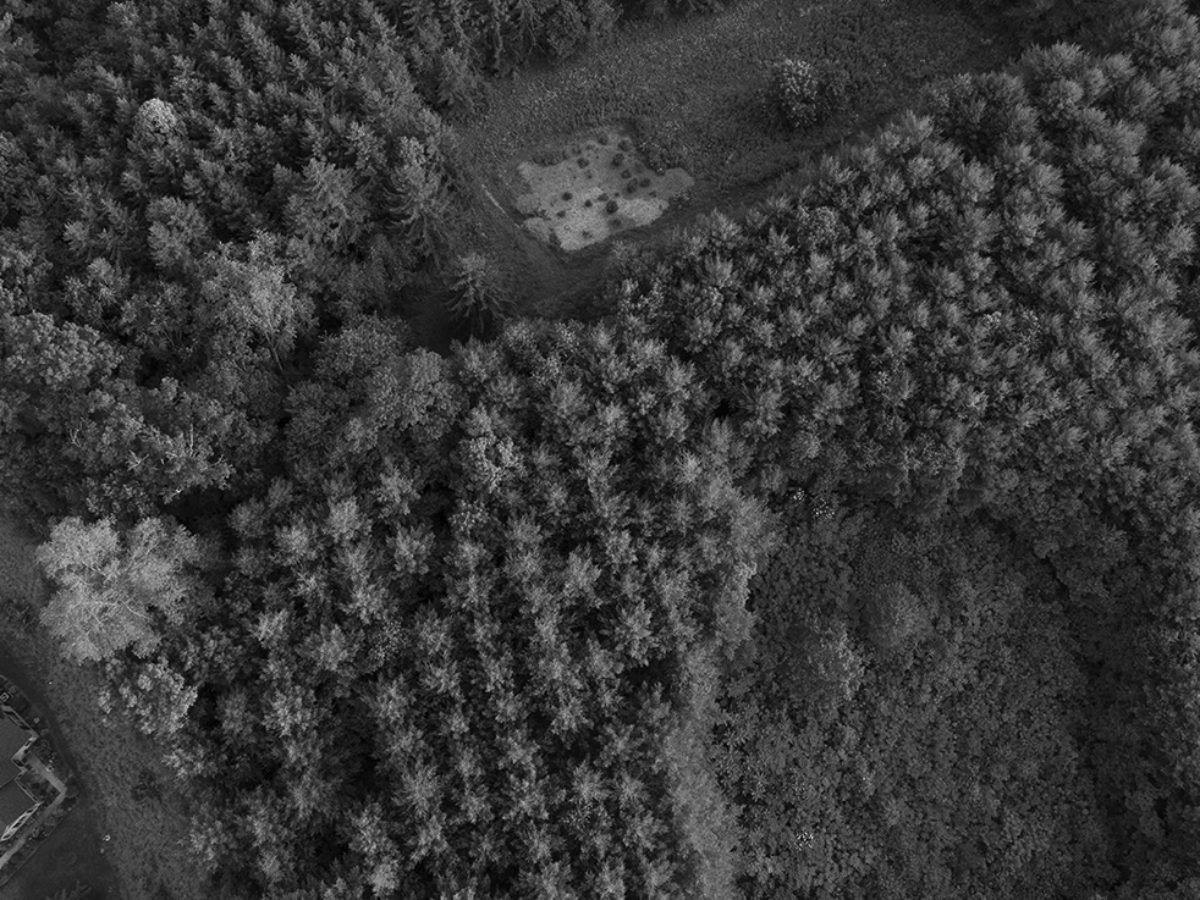
Creative Writing
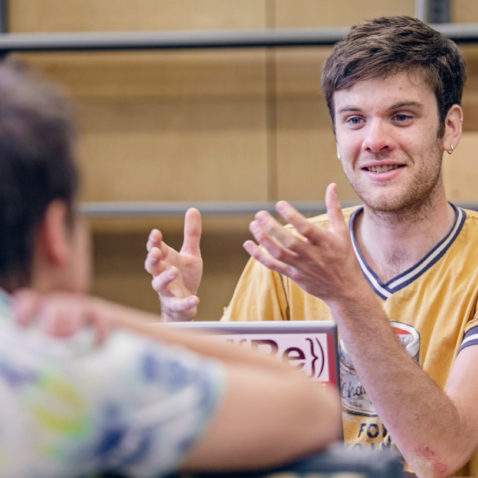
BA MAJOR & MINOR
What You’ll Study
We all have a voice and our own unique set of ideas we want to share. Our Creative Writing program dives deep inside to unlock your ability to craft those stories the world needs to hear. You’ll learn the challenges and techniques involved in creating original work as you refine your personal style. And you’ll practice responding to the work of others, including your classmates and published authors.
Writings will focus on three genres:
- Creative non-fiction
We’ll look at a variety of literature to teach you themes, narrative style, rhetorical devices, and cultural context that can enhance your work. Ultimately, you’ll improve your writing and develop techniques, skills, and understanding necessary to be a successful writer.
A Close Community of Writers
Literary critique is an essential skill for a professional writer, and a cornerstone of the Warren Wilson program. Even when it makes you uncomfortable, you’ll learn to give and receive constructive feedback and use it to improve your work. You’ll get to know the individual styles of fellow students, faculty, and authors and learn to bring outside perspectives to characters in your own writing. And there are plenty of opportunities to share your work, through open mic nights, poetry slams, student readings, literary magazines, newspapers, and journals.
World-Renowned Authors
There’s a strong relationship between the undergraduate creative writing program and Warren Wilson’s nationally top-ranked MFA Program for Writers . Although the MFA residencies take place when the college is not in session, a small group of undergraduate creative writing majors have the opportunity each January to attend MFA lectures and readings. Undergraduate writers benefit as well from the visit each year from one of the MFA faculty. The MFA Writer-in-Residence teaches a class, leads a workshop, gives a reading, and holds manuscript conferences with senior creative writing students. This access provides a one-of-a-kind opportunity for Warren Wilson undergraduates.

Monthly Events
We host monthly reading and writing events! Here are just a few writers who have visited us recently: Morgan Thomas Dean Bakopoulos Gabrielle Calvocoressi José Angel Araguz Caitlin Horrocks Ashley M. Jones Carmen Maria Machado Dana Levin Carmen Giménez Vanessa Angélica Villarreal Amber Flora Thomas Aisha Moon
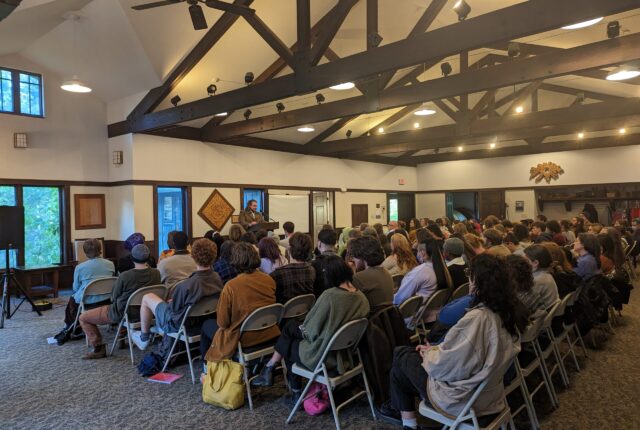
Explore Classes in This Program
Literary magazine: history & editing.
Learn the history and purpose of literary magazines and literary publishing through reading, discussions, and magazine production. You’ll read, analyze, and critique blind submissions as well as learn the process behind editorial decisions. You will also learn basic copyediting. Explore how to market and advertise literary magazines; solicit authors; acquire and publish visual art, poetry, prose, criticism, and book reviews of literary and academic merit; and design layouts.
Research in Creative Writing
Students new to creative writing are often not aware of the substantial work many creative writers do to give their work a solid grounding in fact, or to usefully play with or respond to fact. Reading the work of published authors, you will detect the underpinning of research in creative work. You’ll then develop projects in poetry, fiction, or nonfiction that draw upon your previous studies in both creative writing and other fields, seeking a fruitful intersection of these creative genres and another discipline.
Creative Writing: MFA Residency
As an advanced writing student, you’ll experience a rigorous and immersive course that takes you through a portion of the curriculum of the MFA Winter Residency, engage in graduate-level discourse, and offer some sense of the graduate school experience. During the ten-day January residency of the College’s MFA Program, you’ll attend the readings, lectures, and courses offered by MFA faculty and graduating students. You will also engage in seminar discussion of topics raised in the Residency, pursue the readings in greater detail, and map a work plan for the upcoming workshop.
Warren Wilson has serious, passionate writing students. It's rare to find students so invested in creative writing at the undergraduate level, and I love working with them. I'm given a lot of freedom in my teaching here, so I’m able to take classes in directions I couldn’t elsewhere.
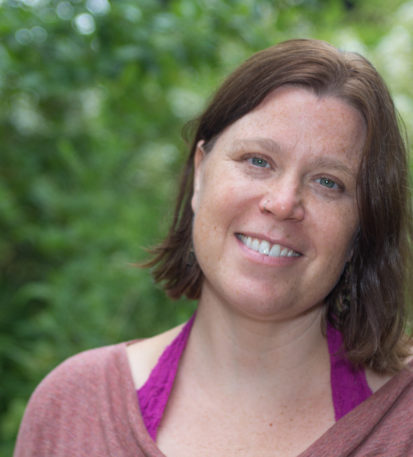
We cannot enter the struggle as objects in order to later become subjects.
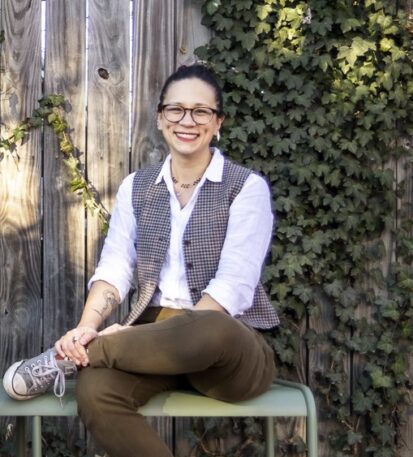
Warren Wilson is an extraordinary institution. I enjoy guiding students with creative energy and passion.
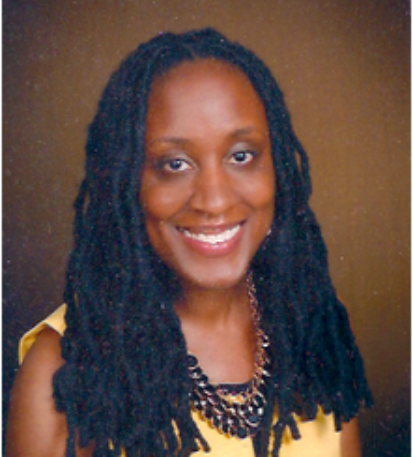
Hands-on, All-in

Like this program? You might like these too.
| --> | ||||||||||||||||||||||||||||||||||||||||||||||||||||||||||||||||||||||||||||||||||||||||||||||||||||||||||||||||||||||||||||||||||||||||||||||||||||||||||||||||||||||||||||||||||||||||||||||
| University of North Carolina Wilmington | ||||||||||||||||||||||||||||||||||||||||||||||||||||||||||||||||||||||||||||||||||||||||||||||||||||||||||||||||||||||||||||||||||||||||||||||||||||||||||||||||||||||||||||||||||||||||||||||
| ||||||||||||||||||||||||||||||||||||||||||||||||||||||||||||||||||||||||||||||||||||||||||||||||||||||||||||||||||||||||||||||||||||||||||||||||||||||||||||||||||||||||||||||||||||||||||||||
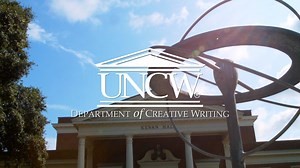


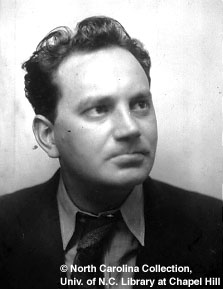
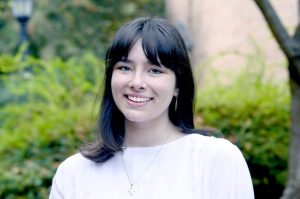


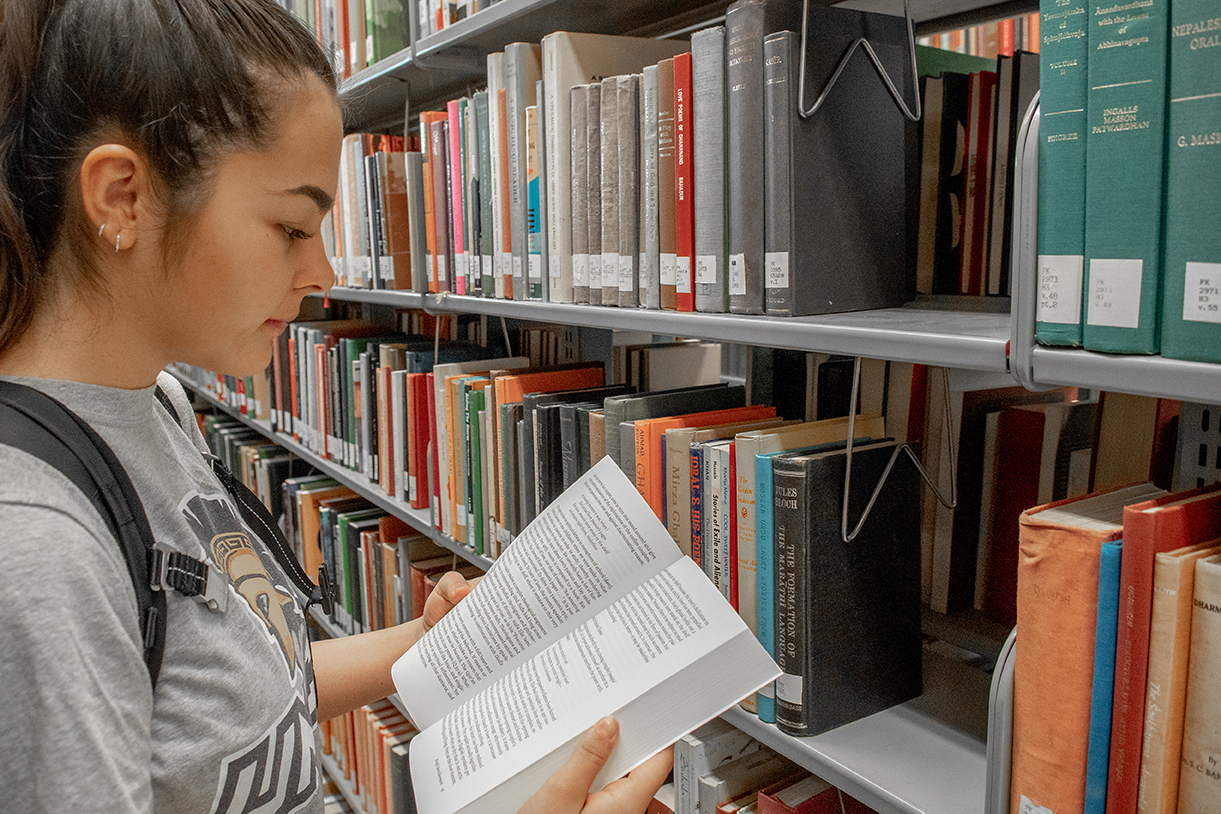




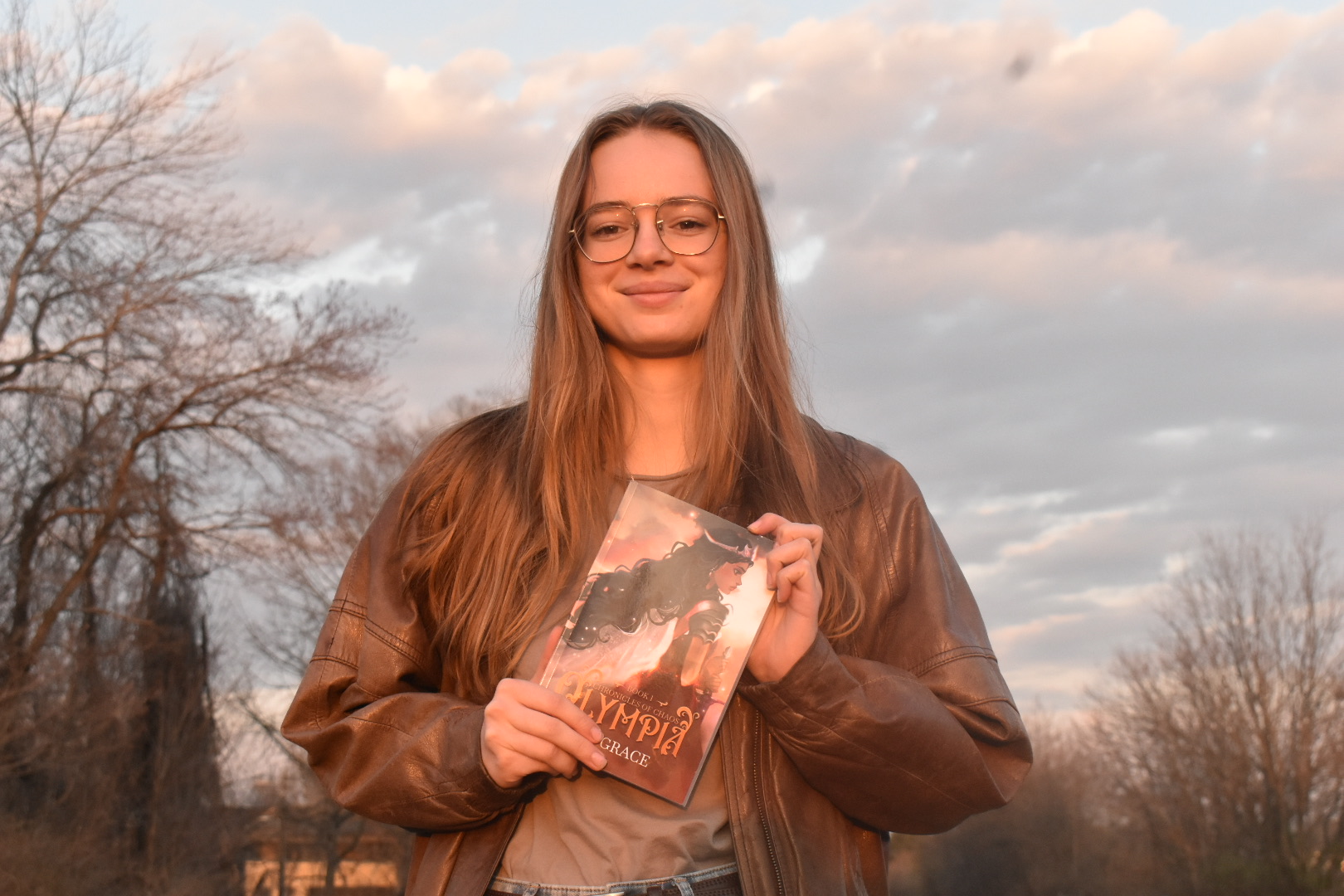
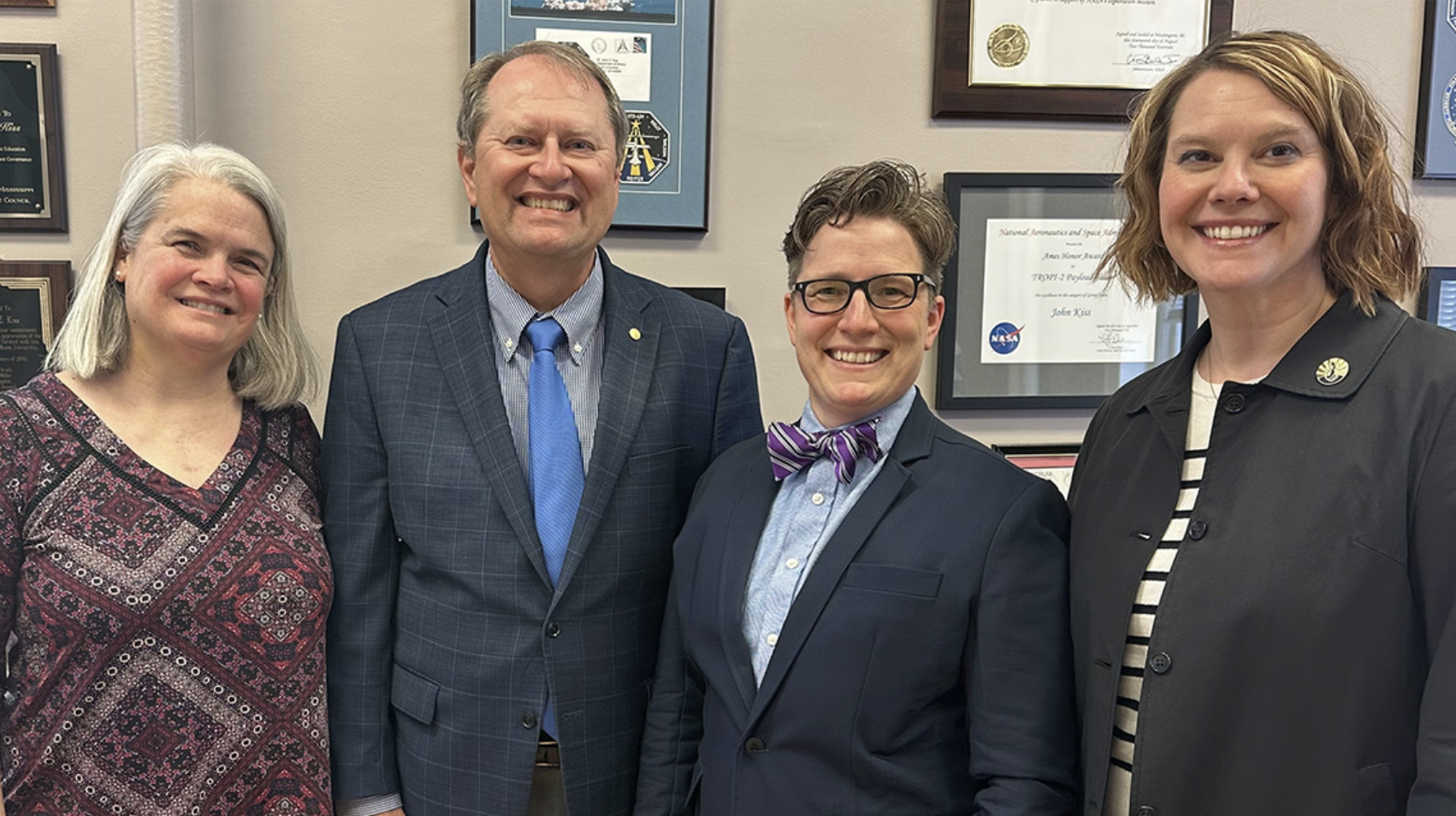
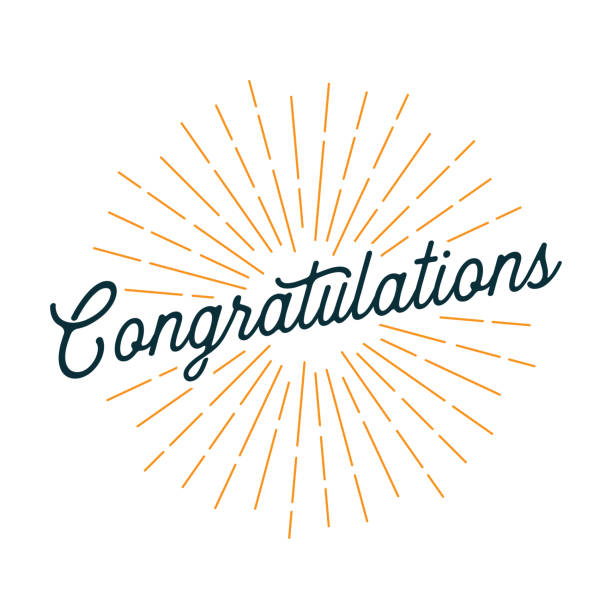
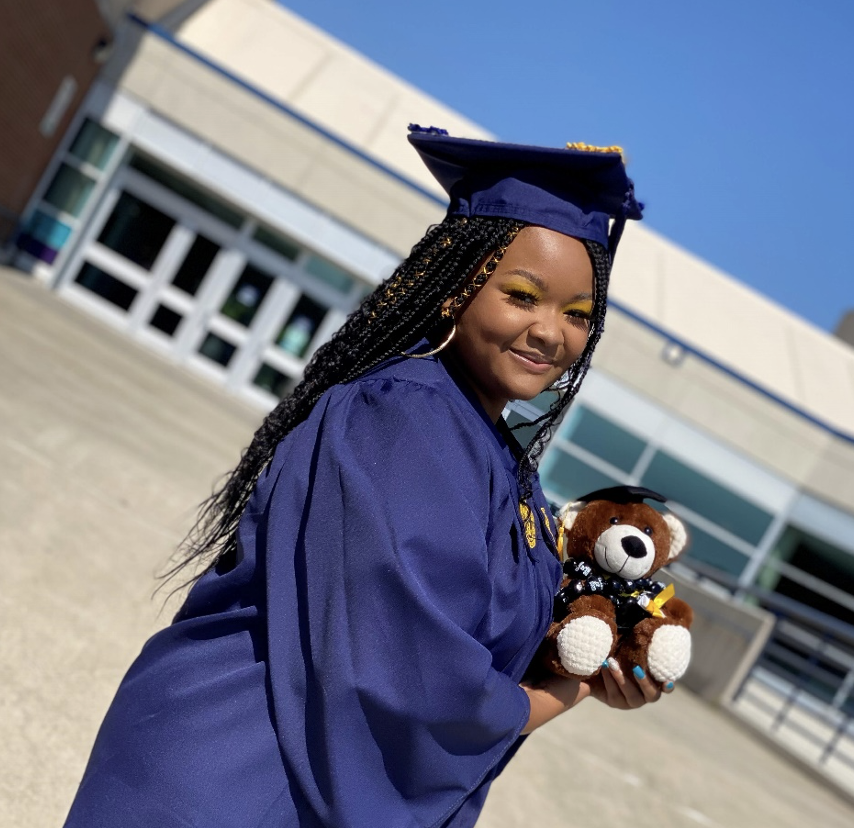
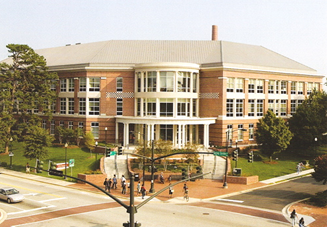

IMAGES
VIDEO
COMMENTS
Creative Writing. Chapel Hill has always been a magnet for writers. Some students come with the goal of becoming novelists or short story writers or poets or dramatists; others discover their vocations while undergraduates. The University has long had a vigorous writing tradition, beginning when "Proff" Koch, Paul Green, and Samuel Selden ...
University of North Carolina Wilmington. Wilmington, NC. University of North Carolina Wilmington offers 2 Creative Writing degree programs. It's a large, public, four-year university in a midsize city. In 2022, 60 Creative Writing students graduated with students earning 33 Bachelor's degrees, and 27 Master's degrees. Based on 7 Reviews.
Read 355 reviews. C+. Overall Niche Grade. Acceptance rate 67%. Net price $19,701. SAT range 1000-1210. Catawba College, located in Salisbury, North Carolina. Catawba offers a range of undergraduate programs in areas such as business, education, environmental science, performing arts, and more. The....
1. North Carolina State University. Raleigh, NC. Master's Degree Highest Degree Type. 4th Most Popular In NC. North Carolina State University is one of the best schools in the country for getting a degree in creative writing. NC State is a fairly large public university located in the city of Raleigh. A Best Colleges rank of #92 out of 2,217 ...
Specialize in poetry or fiction through our Master of Fine Arts in Creative Writing. Work with our award-winning poets and writers to hone your craft. Request info. The MFA is a two-year, fully-funded program, consisting of workshops, interdisciplinary coursework and a final thesis of literary work. Distinguished by the one-on-one attention ...
The Master of Fine Arts in creative writing is a two-year full residency program with an emphasis on providing studio time for the writing of poetry or fiction. Our students develop their particular talents through small classes in writing, literature, and publishing. ... The MFA Writing Program at the University of North Carolina at Greensboro ...
Creative Writing Minor. The undergraduate creative writing program at UNC-Chapel Hill is — and has long been — one of the best in the country. Its first-rate faculty and students have published widely, won many prizes, and played a major role in shaping the contemporary literature of North Carolina, the South, and the nation.
The department of English and Comparative Literature's Creative Writing program is - and has long been - among the best in the country. Hundreds of alumni have gone on to write books, films, albums, plays, and television shows, pursue graduate study in creative writing, and publish stories, poems, and essays in the world's best journals, magazines, and newspapers.
The Creative Writing Program "Leading with Service - Motivating through Words and Ideas" North Carolina A&T is one of the oldest historically Black colleges and universities (HBCU) offering a full-service Creative Writing Program, and one of the few offering a Bachelor of Arts degree in English/Creative Writing.
UNC Greensboro's Creative Writing program is one of the oldest and most distinguished in the country. The residential faculty at the MFA Writing Program in Greensboro are not only award-winning writers, but also committed teachers who have spent their careers mentoring young writers. Graduates have published more than 200 works of poetry and ...
Creative Writing Concentration, English B.A. Students in the Creative Writing concentration will study and practice the art and craft of writing poetry, fiction, and creative nonfiction as part of a broader humanistic inquiry. As students progress through introductory, intermediate, and advanced courses, they will sharpen skills in crafting ...
Welcome! Since 1999, the UNCW Department of Creative Writing has cultivated a community of deeply committed writers who believe that the creation of art is of crucial personal and collective value. We think you'll find we are an open-minded and big-hearted group. Our faculty encourages a rigorous yet safe, supportive environment in which ...
With award-winning faculty including a former North Carolina Poet Laureate, Appalachian's Department of English offers one of the finest undergraduate creative writing programs in North Carolina. Students flourish in small classes focused on workshopping their writing, and have the opportunity to engage with renowned visiting authors ...
Creative sample: for fiction, two short stories, or for a novel, three chapters (or one chapter and a short story) totaling 25-40 pages; for poetry, 12 complete poems. Critical sample: no more than 15 pages of writing demonstrating your ability to succeed in graduate-level literature classes, a required part of the MFA curriculum.
Students completing the MA Concentration in Creative Writing will be well-prepared for MFA and Ph.D. programs in the field. Undergraduate and MA students from Charlotte have been accepted with funding to a number of graduate programs, including at Columbia University, the North Carolina School of the Arts, University of Colorado at Boulder, UNC ...
Writings will focus on three genres: Fiction. Creative non-fiction. Poetry. We'll look at a variety of literature to teach you themes, narrative style, rhetorical devices, and cultural context that can enhance your work. Ultimately, you'll improve your writing and develop techniques, skills, and understanding necessary to be a successful ...
The MFA at UNCW is a 48-hour apprenticeship, requiring a total of 21 hours of writing workshops, 21 hours of literature or other elective courses, and 6 thesis hours, leading to completion and defense of a substantial book-length manuscript of literary merit and publishable quality. While students apply in poetry, fiction or creative nonfiction ...
The concentration in creative writing (CRW) offers a background in literature and language with an emphasis on writing fiction, poetry, screenplays, and / or non-fiction. The 21-hour Creative Writing concentration includes four creative writing courses, two literature courses, and one English elective. Creative Writing graduates often go on to ...
An M.F.A. candidate is required to complete at least 12 credit hours of writing workshop courses in a primary genre (poetry, fiction, creative nonfiction). An M.F.A. candidate is required to complete a minimum of six credit hours in a secondary genre, which must include at least one 3-hour writing workshop ( CRW 530 , CRW 542 , CRW 544 , CRW ...
Restoration and 18th-Century Drama. ENG 580. Literary Postmodernism. ENG 582. Studies in Literature. Additional literature courses are approved in conjunction with the academic committee. Elective Courses. 12. Select a minimum of 12 credit hours of electives approved in conjunction with the academic committee.
The Thomas Wolfe Scholarship. The Creative Writing Program and the Department of English of the University of North Carolina at Chapel Hill are pleased to announce the Thomas Wolfe Scholarship. It offers full four-year financial support to one incoming student per year, including tuition, room and board, books, a new laptop, and a summer ...
The English major allows flexible plans of study appropriate for different career aspirations. The English Department awarded over $65,000 in scholarships to our undergraduate majors for Academic Year 2019-20. Our Graduate students received: $ 507,000 in tuition remission, $777,000 in stipends, and $50,000 in Grants, Fellowships, and Minerva ...
Students will work on their craft and meet and learn from professional authors and artists. We offer two programs: The Young Writers Workshop accepts applications from creative writers entering 5th through 8th grades. The 2025 YWW will meet on weekday afternoons, July 7-18. The Teen Writers Workshop accepts applications from creative writers ...
500- and 600-level creative writing courses, some of which may be repeated for 9 units of credit (12 units) Coursework in literature, literary criticism, literary theory, and/or readings in creative writing (12 units) Electives chosen with your advisor's approval (6-9 units) ENG 699, for the research, writing, and revision of an approved thesis ...